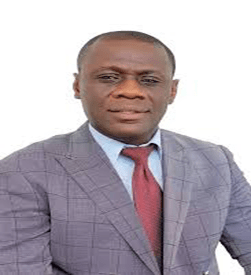By Samuel Lartey(Prof)
The 2024 Mid-Year Budget Review, presented by Dr. Mohammed Amin Adam, MP, Minister for Finance, addresses the challenges and opportunities facing Ghana’s economy while outlining several key initiatives aimed at improving the lives of ordinary Ghanaians.
This review highlights the government’s commitment to fiscal consolidation, economic growth, and social protection. This feature article explores the direct and indirect benefits of the budget review for the average Ghanaian, shedding light on how these measures will impact daily life, from financial stability to social services and infrastructure development.
Economic Stability and Relief Measures
- Inflation Control and Cost of Living
One of the primary concerns for ordinary Ghanaians is the high cost of living driven by inflation. The budget review outlines several measures aimed at controlling inflation and stabilizing prices.
1.1. Declining Inflation Rates
The government’s efforts have led to a significant reduction in inflation rates, from 54.6% in December 2022 to 22.8% by June 2024. Lower inflation means that the prices of goods and services will stabilize, making everyday essentials more affordable for Ghanaians.
1.2. Price Stabilization
Stabilizing the exchange rate and improving gross international reserves have contributed to controlling inflation. This ensures that the cost of imported goods does not rise unpredictably, protecting consumers from sudden price hikes.
Social Protection and Support Programs
- Enhanced Social Protection
The budget review emphasizes social protection programs designed to support the most vulnerable populations in Ghana.
2.1. Livelihood Empowerment Against Poverty (LEAP)
The LEAP program, which provides financial support to vulnerable households, has seen an increase in grant amounts. This rise from GH¢64.00 in 2022 to GH¢256.00 in 2024 ensures that the real value of the grants is maintained, helping families meet their basic needs.
2.2. Ghana School Feeding Programme (GSFP)
The GSFP continues to expand, now covering nearly 4 million beneficiaries. By providing nutritious meals to school children, this program not only supports children’s health and education but also reduces the financial burden on parents.
2.3. Capitation Grant
The capitation grant for public basic schools has been increased from GH¢5.00 in 2016 to GH¢15.00 in 2024. This ensures that schools have adequate resources to provide quality education, reducing the financial strain on parents and improving educational outcomes.
Healthcare Improvements
- Enhanced Healthcare Services
Access to quality healthcare is crucial for the well-being of all Ghanaians. The budget review outlines several initiatives aimed at improving healthcare services.
3.1. National Health Insurance Scheme (NHIS)
The NHIS has expanded its benefit package to include treatments for childhood cancers, prostate cancer, mental health care, annual health checks, dialysis services, and care for sickle cell patients. These additions ensure that more Ghanaians have access to essential healthcare services without facing financial hardship.
3.2. Healthcare Infrastructure
Investments in healthcare infrastructure, including the completion of district hospitals and the Urology and Nephrology Centre of Excellence at Korle Bu Teaching Hospital, ensure that healthcare services are accessible and of high quality.
Education and Skills Development
- Education Enhancements
Education remains a top priority for the government, with several initiatives aimed at improving access and quality.
4.1. Free Senior High School (SHS) Programme
The Free SHS programme continues to provide free education to Ghanaian youth, with over 5.7 million students benefiting since its inception. This initiative ensures that financial constraints do not hinder access to secondary education, promoting equal opportunities for all.
4.2. Technical and Vocational Education and Training (TVET)
Investments in TVET programs equip young people with practical skills, enhancing their employability. With 168,000 students enrolled in TVET programs for the 2023-2024 academic year, more Ghanaians are gaining the skills needed to succeed in the job market.
Infrastructure and Economic Activities
- Infrastructure Development
Investments in infrastructure are crucial for economic development and improving the quality of life for Ghanaians.
5.1. Road and Transport Infrastructure
Significant investments in road infrastructure, including the construction of new roads and the rehabilitation of existing ones, improve connectivity and reduce travel times. Projects like the Accra-Kumasi highway and the Tema-Mpakadan Railway Line enhance transportation networks, facilitating trade and economic activities.
5.2. Water and Sanitation Projects
Investments in water supply and sanitation projects ensure that more communities have access to clean water and proper sanitation facilities. Projects like the Ejura, Wulensi, and Bole Water Systems provide essential services that improve public health and quality of life.
Job Creation and Economic Opportunities
- Employment and Economic Opportunities
Creating jobs and providing economic opportunities are key to improving the livelihoods of ordinary Ghanaians.
6.1. Youth Employment Agency (YEA)
The YEA has engaged about 90,000 beneficiaries in various programs, including community policing, health services, and garment and apparel production. These initiatives provide young people with valuable work experience and skills, enhancing their employability.
6.2. SME Support and Growth
The SME Growth and Opportunity Programme (SME GO) provides financial and technical support to small and medium-sized enterprises (SMEs). By supporting SMEs, the government helps create jobs and stimulate economic activity, benefiting the broader community.
Conclusion
The 2024 Mid-Year Budget Review offers a comprehensive framework for improving the lives of ordinary Ghanaians. Through targeted social protection programs, enhanced healthcare services, investments in education and infrastructure, and support for job creation and economic activities, the government is committed to fostering a more inclusive and prosperous society. By leveraging these initiatives, ordinary Ghanaians can experience significant improvements in their quality of life, ensuring a brighter future for themselves and their communities.










